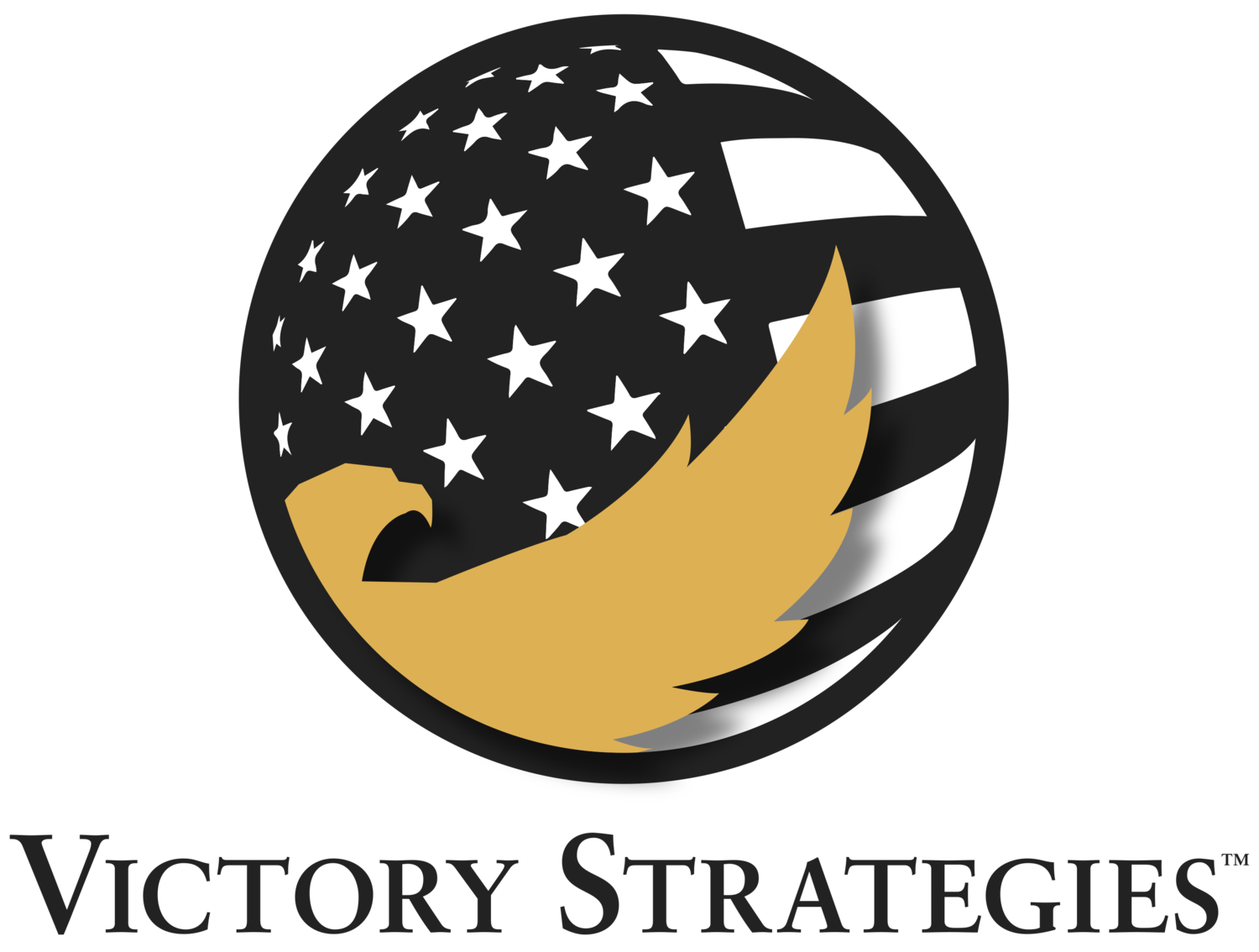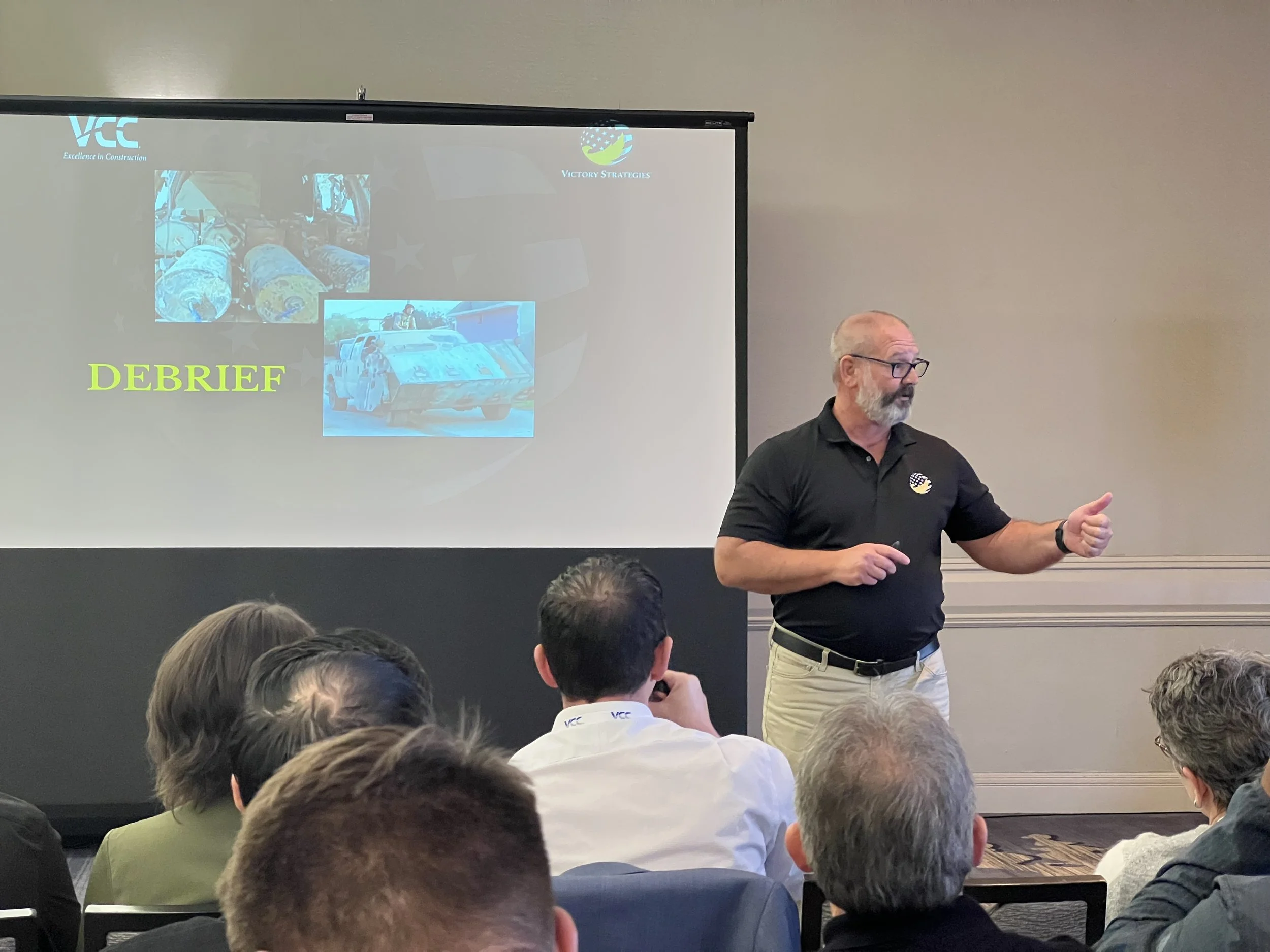Ceaseless meetings, the era of a distributed workforce, and the task saturation of leaders have driven an overreliance on email as the first step in building relationships. While email is a good tool for broadcasting information and quick collaboration, it is not a relationship building tool. In this article, we’ll explore how stepping away from email and instead, implementing and sustaining recurring one-on-one meetings will create the clarity, alignment, and collaboration required to deliver meaningful outcomes.
Strategy Implementation: Attribute Three - Accountability Mechanism and Process
Successful strategy execution requires a well-defined accountability mechanism composed of three interconnected elements: people, process and leadership oversight. Together, these elements create a disciplined system that drives follow-through, maintains focus, and ensures that strategic objectives are translated into measurable results.
Strategy Implementation: Attribute Two - Coaching the Implementation Team
Strategies rarely fail because the vision is flawed; more often, they fail because employees lack the guidance, skill development, and confidence needed to execute effectively. When implementing a strategy, key members of the team must receive dedicated coaching and support from both subject-matter and technical experts.
Strategy Implementation: Attribute One - Senior Leader Champion
Strategy Implementation: Turning Plans into Action - Three Key Attributes for Success
I have seen many well-intentioned organizations draft catchy vision statements, spend significant energy developing a strategy, and then fall flat in execution after the strategic masterpiece is unveiled. A well-crafted strategy is only as strong as its execution. While organizations invest significant time and resources in designing strategies, many fall short when it comes to implementation. Strategy implementation is the critical bridge between planning and results—it ensures that intentions are translated into measurable performance.
The Importance of Vision for Effective Leadership
I have commanded high performing organizations both in combat and peacetime and been lucky enough to serve with some of the best Americans and warriors this country has to offer. I was neither the best leader nor the best warrior. I made many mistakes while on my leadership journey and learned from every one of them. I have many regrets and wish I could go back and make different decisions, take different actions, or treat people differently; but I use these as motivation to be a better leader, mentor, and humble servant. I challenge you to do the same. If you “roger up” to the leadership call, then you will certainly experience failure, but you should see these failures as opportunities for growth and reflection. We should never consider ourselves to be experts but students who are on a continuous journey to become better.
Embracing Diverse Perspectives in Leadership
One of the things I miss most about being in uniform is the camaraderie I felt with my fellow service members almost immediately upon arriving at a new organization. Over a 33-year career, this shared bond made each assignment a little easier, knowing I would quickly find people with common experiences and a shared purpose whenever I joined a team. These connections are a big part of what made military service so meaningful to me and I wouldn’t trade them for anything. Yet, over time, I realized that if left unchallenged, my comfort with teammates who shared similar experiences and thought processes could sometimes limit my openness to other perspectives.
Talent or Tenure?: Considerations for promotability and vertical growth
Characteristics Of High Performing Teams
Have you wondered what makes a high-performing organization tick? What secret sauce allows a group of individuals to achieve unparalleled success? Most people would agree that leadership provides a critical component. However, history is replete with examples of organizations, whose leaders demonstrated a history of outstanding leadership and management, only to create an environment that inevitably led to disaster. Enron, WorldCom, Blockbuster, and Blackberry provide vivid examples of…
Meeting Efficiency: The DOs and DONTs
Good meetings allow people to be more effective and productive, which provides a good return on the time investment. Bad meetings, on the other hand, are a time suck that disrupt schedules and demotivate teams. After a couple of decades of leading and managing, I’d offer the following tips and perspectives on meetings…
The Role Of A Coach
For the last 15 years, I have been helping emerging athletes and sports teams find a way to win on the world stage. And, whether in Africa, the Pacific, or North America, the most significant factor determining success is usually not a lack of desire, hard work, or financial support but rather the quality of the person that someone is listening to the most - the coach.
A Leader’s Guide: What It Takes to Develop Your Culture
Five Decades Of Leadership Wisdom From A 4-Star General
Forging Ownership and Accountability: Four Magic Words
Have you ever wondered what the ‘secret sauce’ is to high performing teams?
Like many leaders, I’ve pondered that very question many, many times. Operating in and having had the honor of leading high performing teams, I’ve found a few select ingredients to be vital. Such as trust and strong professional relationships. Such as deeply held shared values and a clear and unifying purpose. From what I’ve experienced, these are essential cornerstones of excellence in teams.
However, even the strongest of cornerstones can be eroded by ‘change’. And, as we all know, the only constant IS change. So, what is a team leader seeking long term high performance to do?
Try this. Experience has taught me that ownership and accountability can be outstanding countermeasures to the challenges of change. Ownership embodies initiative and determination to overcome any obstacle. Accountability brings commitment to team and teammates, and that ‘I’ve got this, you can rely on me’ mentality. In my journey, taken together these are powerful catalysts supporting consistent high performance in the face of ‘change’.
This has been a leadership lesson learned for which I owe a huge debt of thanks. As a newly minted team leader in the early years of my career, I learned first-hand the power of ownership and accountability. My executive leader - let’s call him Mike - was extremely wise, experienced, and knowledgeable, a true ‘engineer’s engineer’. He placed a strong emphasis on not only performance but also equally the long-term reliability of our designs. He was data driven, deeply experienced and excelled in asking detailed and challenging questions during our many design reviews.
Our team had deeply studied the designs of not only domestic competitors but also global competitors whose designs sometimes differed from common accepted practices in our North American market. Our challenge, as an engineering team, was to find the best practice for our designs. In our design reviews, Mike drilled deeply into our designs, asking difficult but appropriate questions, seemingly one after another, non-stop. It was extremely rigorous. Our design challenged some of the conventional wisdom of designs in the North American market and was counter to his experience. As an executive leader, Mike had to make a choice – direct us to change the design to be more conventional or trust and empower our design direction given the rigorous engineering reviews he conducted.
In retrospect, it would have been easy for Mike to micromanage and support the more commonly accepted design practice at that time, but he saw opportunity in our design to set a new, better standard and supported our approach. After explaining to our team how he reached his decision, his words still ring true to me to this day, decades later.
Those are the four magic words: ‘I’m counting on you”.
In only one short phrase he empowered us. And in doing so, ownership and accountability immediately followed. We knew our leader challenged us deeply and ultimately believed in and supported us. If you have ever experienced the restrictions of a micromanager, you know firsthand the feeling of freedom when it is truly your call, and you are being trusted to deliver success.
It has been said that the difference between managers and leaders is that managers make sure things are done right, while leaders make sure the right things are done. Mike was a true leader, and his decision was a prime example to us all. Mike trusted us. It was both the ultimate compliment and ultimate incentive at the same time. Now, it was up to us to make it happen.
It wasn’t easy. Long hours, lots of learning and continuous improvement along the way. But knowing we owned it and were accountable for its success, we pushed ourselves willingly. Discretionary time now was also devoted to the cause. We went way past ‘above and beyond’. We were on a mission.
Imagine unleashing that same energy, enthusiasm and determination on any problem or objective your team faces. It is magical to be part of, and thanks to Mike, a leadership lesson forever learned.
So, now it’s your turn. I’m counting on you.
Authored by: Jeff Boyer, Managing Director
BENEFITS OF A TEAM OFFSITE
Empathetic Leadership
Does 1+1 = 2?: The Power Of Team
I have a simple math problem for you. What is one plus one? If you said two, you’re correct, some of the time. If you had asked me that question right after I graduated from engineering school, I would have told you emphatically, “yes!” After a 26-year career as a US Navy fighter pilot, I’ll tell you the answer is, “sometimes.”
Seek Commitment over Compliance
The first slide boldly asked, “Are you committed to our company?” This was one of the first questions I was asked during my onboarding in one of my first post-military jobs. I had just completed committing 25+ years of my life and my family’s life to the United States Air Force. We were no strangers to the dedication this lifestyle required to…




















